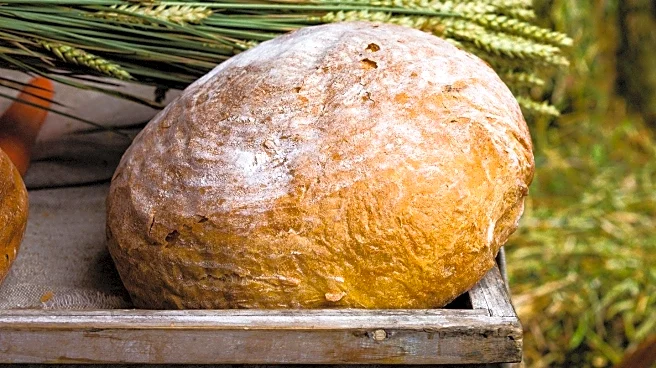What's Happening?
Seylou Bakery in Washington, D.C., along with other bakeries, breweries, and distilleries, is adopting regenerative farming techniques to improve the quality and flavor of their products. These methods
involve using whole grains grown with traditional practices that enhance soil health and reduce chemical use. Seylou Bakery sources grains from local farms that rotate crops and avoid intensive tilling, resulting in unique and flavorful baked goods. Similarly, Maker's Mark distillery in Kentucky has found that grains grown with regenerative practices yield more complex flavors in their whiskey.
Why It's Important?
The shift towards regenerative farming practices represents a significant move in the food and beverage industry, emphasizing sustainability and environmental responsibility. By using grains grown with these methods, businesses can offer products that are not only more flavorful but also more nutritious. This approach supports local farmers and promotes healthier ecosystems, potentially reducing the environmental impact of agriculture. Consumers are increasingly willing to pay a premium for products that align with these values, driving demand for sustainably sourced ingredients.
What's Next?
As consumer preferences continue to evolve, more businesses may adopt regenerative farming practices to meet the demand for sustainable and high-quality products. This could lead to broader changes in agricultural practices, encouraging more farmers to transition to methods that improve soil health and reduce chemical use. The success of businesses like Seylou Bakery and Maker's Mark could inspire others in the industry to explore similar approaches, potentially leading to a more sustainable food system.
Beyond the Headlines
The adoption of regenerative farming practices has broader implications for environmental conservation and climate change mitigation. Healthier soil can sequester more carbon, contributing to efforts to reduce greenhouse gas emissions. Additionally, these practices can improve biodiversity and water quality, offering long-term benefits to ecosystems. The movement towards sustainable agriculture reflects a growing awareness of the interconnectedness of food production, environmental health, and consumer choices.










